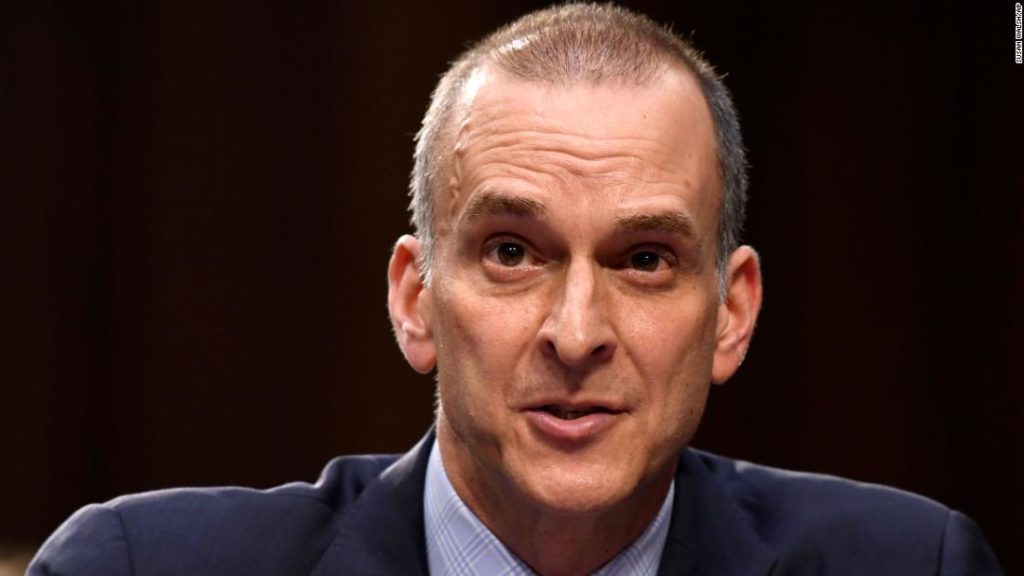The Rodchenkov Anti-Doping Act (RADA), which passed unopposed in the Senate on Monday and now only requires presidential approval before becoming law, would impose criminal sanctions on individuals involved in doping at major international sports competitions that feature US athletes, sponsors and broadcasters.
Named after whistleblower Dr. Grigory Rodchenkov, who was instrumental in exposing the Russian doping scandal, the Act targets a sports star’s entourage — coaches, doctors, agents and officials — as well as athletes themselves.
Penalties for violating the proposed anti-doping law include up to 10 years imprisonment and fines of $250,000 dollars for individuals and $1 million for organizations.
“There is nothing that deters criminal conduct more than the threat of being put in jail. And to doctors, trainers, state actors that engage in this behavior after the Act gets signed into law, they risk the fact that they’ll be indicted in secret and that once they get on a plane, a red notice will get tripped.
“They’ll be arrested and extradited to the US. And I think that deterrent is going to have an immediate and positive impact on curbing doping fraud worldwide.”
Travis Tygart, CEO of the US Anti-Doping Agency (USADA), welcomed the passing of the bill in the Senate as a “monumental day in the fight for clean sport,” also noting that it protects whistleblowers from retaliation.
But the global consequences of the bill have been met with criticism.
“Not only in the context of this document, but in general, we are extremely critical of any attempts by the United States of America to extend its jurisdiction to other countries,” Russia’s presidential spokesperson Dmitry Peskov said on Tuesday.
“This kind of cross-border practice does not sit well with us, we do not agree with it, and, of course, this causes nothing but concern.”
In a statement on Tuesday, WADA criticised the Act, saying it fears the proposed measures would “disrupt the global legal anti-doping framework” and “undermine the fight against doping worldwide.”
It continued: “No nation has ever before asserted criminal jurisdiction over doping offenses that occurred outside its national borders — and for good reason.
“It is likely to lead to overlapping laws in different jurisdictions that will compromise having a single set of anti-doping rules for all sports and all anti-doping organizations under the World Anti-Doping Code.”
It also questioned why the legislation originally included professional and college leagues in the US, only for those areas to later be excluded from the Act.
“Nearly half a million athletes compete in US college sports, and thousands more in the professional leagues … Why are those who surround the athletes in these associations and leagues now exempt from the scope of this legislation?” said WADA president Witold Bańka.
“If it is not good enough for American sports, why is it being imposed on the rest of the world?”
Walden, however, said he is confident the Act would create an “international system of cooperation” when it comes doping, while also pointing out that encompassing US domestic sport would be unnecessary given current laws already in place.
“There are narcotics laws, there are conspiracy laws, there are fraud laws, all of them can and should be used to combat doping fraud,” he said.
“For the RADA, the provisions that dealt with purely US domestic conduct were redundant — we already have the tools,” added Walden, rebutting WADA’s criticism regarding US sports.
“What prosecutors need to do in the United States is to enforce those rules to help combat the internal problems as well.
“It should also not escape anyone’s understanding that if there is a US scheme to dope during an international competition, the people that are responsible for that doping scheme are as culpable under the Rodchenkov Anti-Doping Act as any foreign actors.”
In a statement to CNN, the International Olympic Committee (IOC) underlined the legislation’s emphasis on an athlete’s entourage.
“Past history in the fight against doping has seen a recurring pattern of networks around the athletes implicated in most cases of doping,” said an IOC spokesperson.
“The athletes themselves already face sanctions, with long-term suspensions under the terms of the World Anti-Doping Code.
“We need to apply the same strict sanctions to their entourage members, and in this respect this legislation will be helpful.”
You may also like
-
Super League: UEFA forced to drop disciplinary proceedings against remaining clubs
-
Simone Biles says she ‘should have quit way before Tokyo’
-
Kyrie Irving: NBA star the latest to withhold vaccination status
-
Roger Hunt: English football mourns death of Liverpool striker and World Cup winner
-
‘Every single time I lift the bar, I’m just lifting my country up’: Shiva Karout’s quest for powerlifting glory

